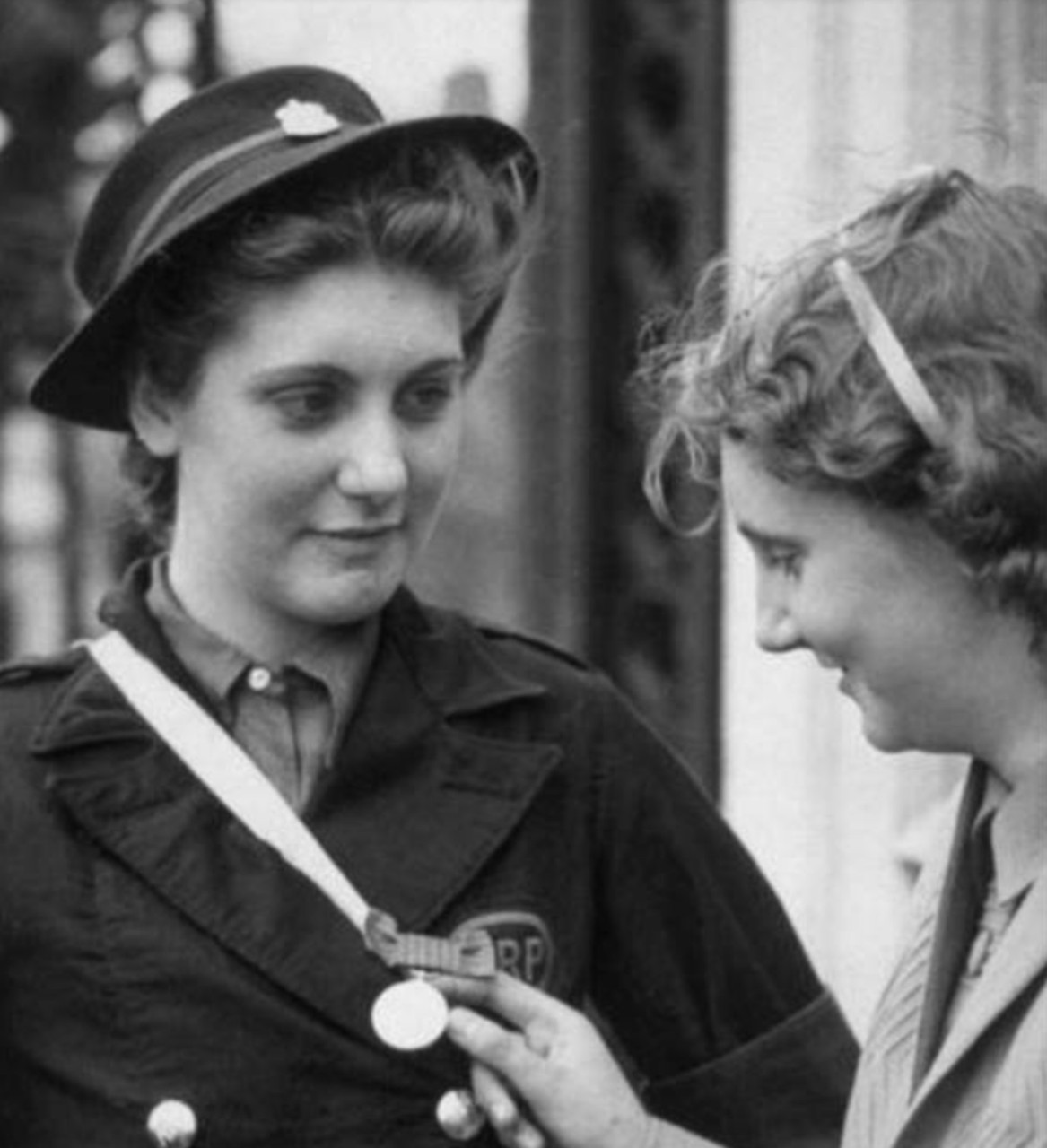Betty Quinn from 39 Masser Road, was 17 years of age and a cadet in St John Ambulance. She volunteered to work alongside the ARP (Air Raid Precautions) teams in Coventry. On the evening of 19 October, Betty was stationed at ARP Post 300a, Hen Lane.
When the bombing raid began, incendiary bombs began to fall around the area of the ARP Post. Betty went into action unaided and began to extinguish any fires that she could. This was all done under a heavy barrage of anti-aircraft batteries that were targeting German planes and shrapnel from the bursting shells falling all around in Hen Lane. A high explosive bomb then hit, injuring a man in the street, who Betty assisted to the safety of a local public air raid shelter.
A report was received that in nearby Dymond Road, an Anderson Shelter at a house had taken a direct hit. Betty responded to this by running to the location whilst bombs were still falling. Alone, she found a crater in the property’s garden and began to dig with a spade.
Betty was able to dig down to the shelter and rescue seven civilians who were trapped and injured. She tended to their wounds and waited for the ambulances to arrive, ensuring all seven were in the care of the crews. The anti-aircraft batteries were still firing away with shrapnel falling around.
Betty then returned to ARP Post 300a, Hen Lane, and began to assist in supporting distressed and injured people there.
For her brave actions and gallantry on the night of 19 to 20 October 1940, the Police Chief Constable recommended Betty for the George Medal. She became one of the youngest recipients of a George Medal at the age of 17.
Elsewhere during the same raid, at 50 Dymond Road, six members of the Overend and Worthington family were killed or died of wounds because of enemy action.
